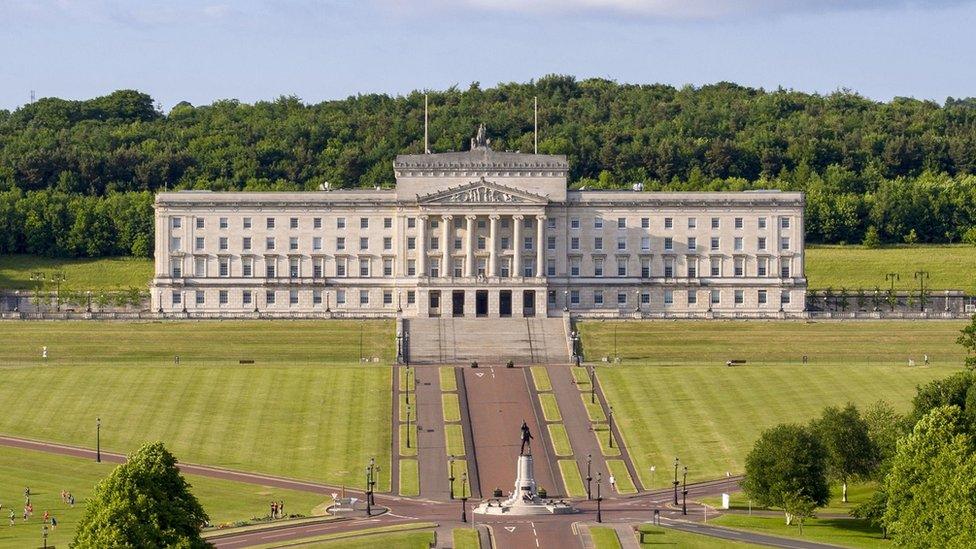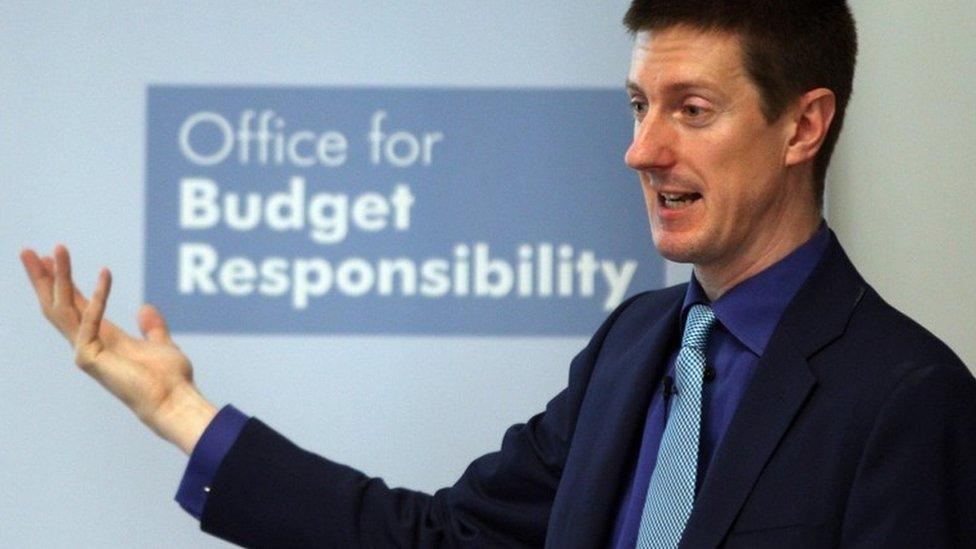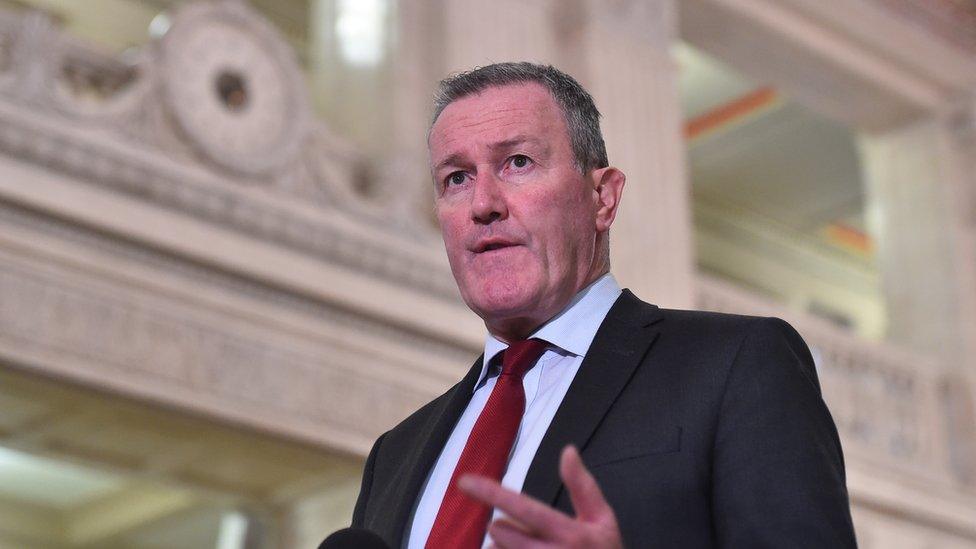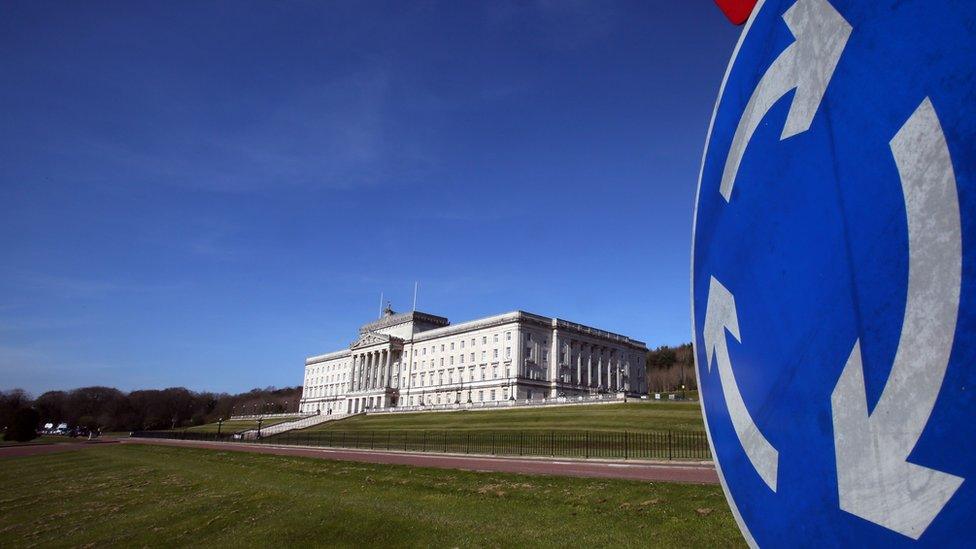Stormont appointment 'like Glentoran signing Messi'
- Published

The Fiscal Council will make an annual assessment of the NI Executive's revenue streams and spending proposals
"Like Glentoran signing Lionel Messi."
The world of Northern Ireland public finance rarely inspires hyperbole like that.
But it is how the economist Richard Ramsey described the appointment of the chairman of Stormont's new independent budget oversight body.
The fiscal Messi is Sir Robert Chote, the former chairman of the UK's Office for Budget Responsibility (OBR).
Sir Robert became the OBR's first permanent chair in 2010, building it into a trusted independent body and showing himself to be a highly effective communicator.
Its jobs include evaluating the government's performance against its own tax and spending targets and assessing the long-term sustainability of the public finances.
In a recent piece for the Financial Times Sir Robert explained his work there was guided by two principles: making the public finances more transparent and highlighting the uncertainty that always surrounds the outlook.
Independence from government
He will lead the creation of a similar institution for Stormont,, external to be called the Fiscal Council.
A budget oversight body of this sort has been promised since the Fresh Start political deal of 2015.
It will be one of many such bodies which have proliferated in the aftermath of the last financial crash.
The assembly's research service has provided a useful overview of these "Independent Fiscal Institutions",, external noting that their key characteristic is independence from the executive arm of government.

Sir Robert Chote was chairman of the UK's Office for Budget Responsibility for 10 years
This will be particularly important for increasing transparency in Northern Ireland as the system of power-sharing government lacks an official opposition.
How Stormont ministers ultimately react to a new source of authority and challenge will be interesting.
As Sir Robert noted in his FT article, independent fiscal institutions form part of a broader institutional architecture underpinning good government and economic management, but which can sometimes be "inconvenient or frustrating" to governments.
Taxation focus
He is not the only "fiscal galactico" on his way to Stormont.
The Finance Minster Conor Murphy also unveiled Paul Johnson as the chairman of a second body, the Fiscal Commission, which will look at what further taxation powers could be devolved to Stormont.
Mr Johnson is director of the Institute of Fiscal Studies (IFS), a think tank which has carved out a distinctive niche explaining what UK budgets really mean.
For example, Mr Johnson said that in this month's budget the chancellor of wasn't really "levelling with people" about the £4bn of spending cuts he was proposing.
He will spend around nine months leading a study on options for the devolution of taxes from Westminster, as well as other revenue raising measures.

Conor Murphy appointed Paul Johnson to look the devolution of tax-raising powers to Stormont
In 2015, Stormont won the power to cut Corporation Tax, albeit still requiring further Westminster approval that the Executive's finances are on a sound enough footing to take such a step.
But there has no comprehensive review of devolved taxation powers, unlike in Scotland and Wales.
It has long been Sinn Féin policy that more taxation powers should come to Stormont, but their DUP partners take a more sceptical view.
That scepticism was reflected in a recent editorial in the unionist daily, The News Letter, which concluded that "major revenue raising powers would make Northern Ireland even more a place apart from Great Britain, which suits republicans".
Whatever unionist reservations, with Mr Johnson on board they will at least know they are getting a robust and independent piece of work assessing the options.
An observation by one of Mr Johnson's IFS colleagues at the start of the pandemic may give us a clue to some of the territory the Fiscal Commission could cover beyond tax.
In March 2020, David Phillips suggested that at least on a temporary basis the devolved administrations should be given more borrowing powers, external and noted that the crisis could "be a prompt to consider the suitability of elements of the fiscal system - like the Barnett formula - that have long been subject to calls for reform".
Related topics
- Published11 March 2021

- Published6 March 2021
